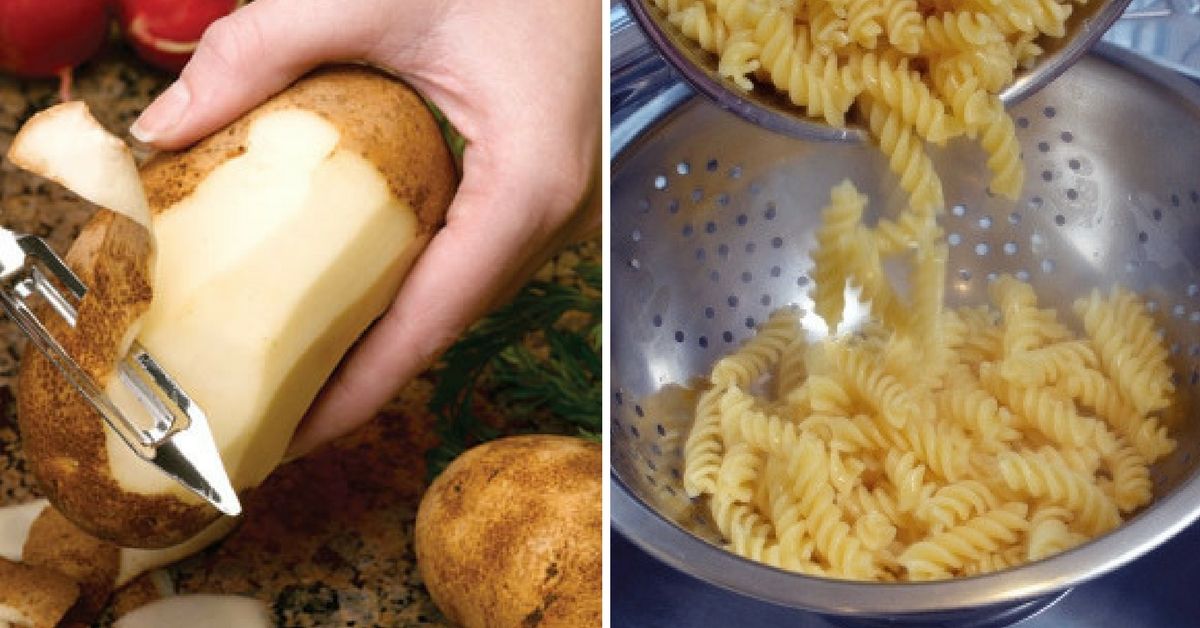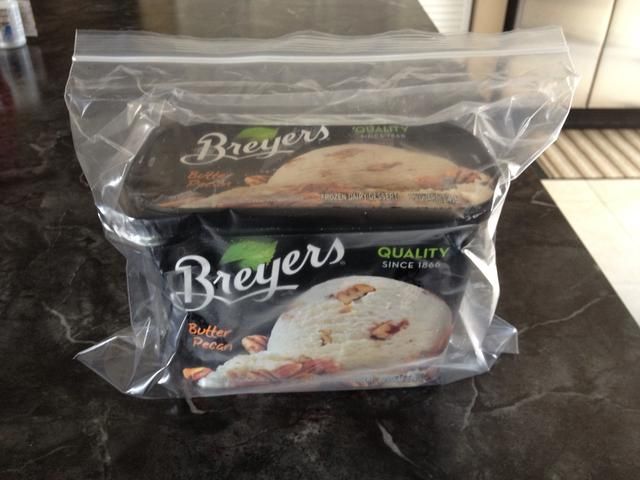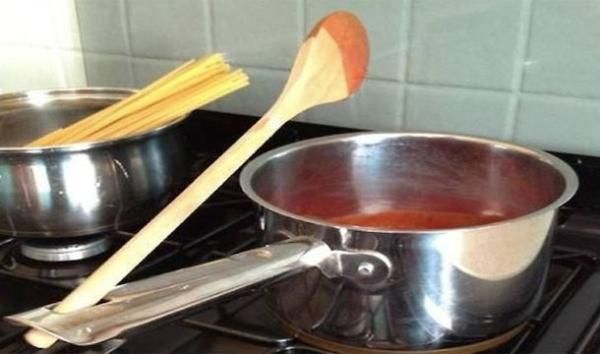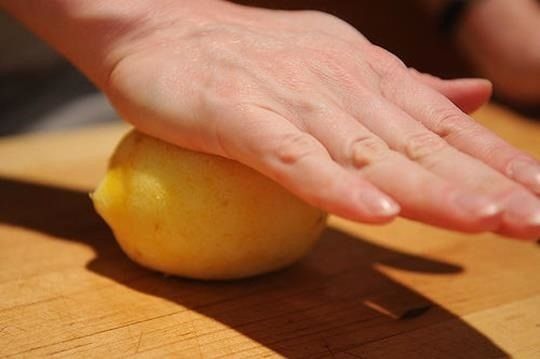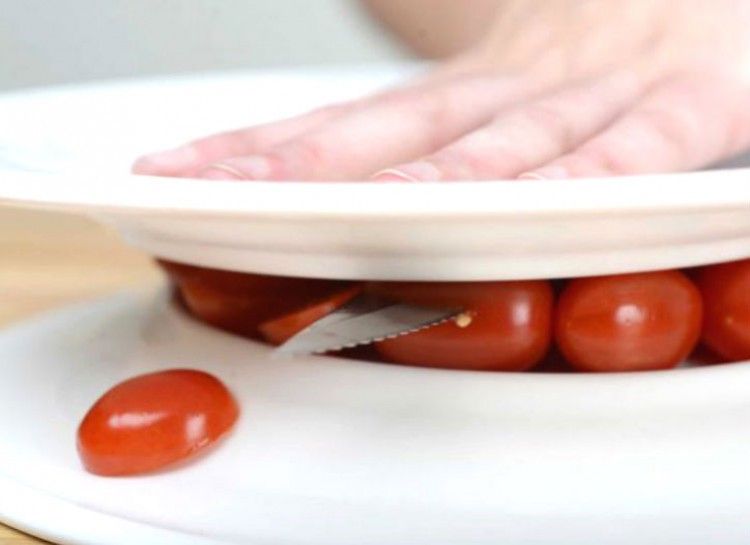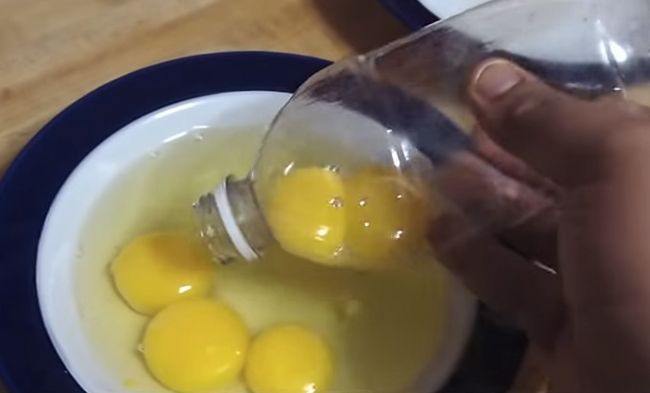I love cooking and baking, but I also have so many other things to do with my day, so I would rather not spend more time than I really can afford to in the kitchen.
Over the years, thanks to some wise people in my life and on the internet, I have picked up some invaluable tricks that have sped up the process of learning my way around the kitchen.
No matter how much you think you know, there's always more you can learn. Seriously, I find a new tip every other day that blows my mind.
Here are 15 common mistakes we've all been making in the kitchen and how to fix them.
1. Storing ice cream
I eat a lot of ice cream, and because of my addiction I used to spend a lot of time waiting for the tub of the frozen treat to warm up on the counter. I hated the wait, so I set out on a quest to find a solution, and boy was I successful!
According to Reddit user CorbinMontego, if you store you ice cream in a freezer bag, it won't turn as hard as a rock, so you'll be able to easily scoop it out without twisting your wrist and bending your spoon.
The other nice thing about storing the ice cream in a freezer bag is that you'll eliminate freezer burn. There is nothing worse than opening up a tub of ice cream and having to chisel through a layer of ice!
2. Reheating pizza
First of all, pizza should never be warmed up in the microwave because you will end up with a soggy mess. Gross. Second, who has leftover pizza?
When you have only a slice or two heat up, it's a waste to turn on the oven, so this is where a frying pan comes in handy. Simply place the individual slices on the pan, with the cheese side up (obviously), and set the stove to medium heat. This will warm up your pizza and melt the cheese all over again.
3. Placing the spoon on top of the pot
Many of us have a habit of letting the spoon rest on top or beside the pot while cooking. Sure, there's no rule book to indicate how where the spoon should go, but there's a little trick that will make things easier for you.
Notice how most pots have a little hole on the handle, you can use it to holster your spoon, so it won't fall off while you're away from the stove. You can also leave a wooden spoon lying across the top of your pot will also help prevent it from boiling over.
4. Washing your hands after peeling garlic
Of course, you should clean your hands after handling such a strong smelling food, but sometimes soap and water won't help very much. Rather than having your fingers smell like garlic for the next week and a half, you can easily get rid of it.
To get rid of the smell, simply rub your fingers on something made out of stainless steel. Sounds really weird, but trust me, it works. Your fridge, stove, dishwasher, a pot, whatever you have lying around!
5. Cooling a beverage
There's nothing worse than a warm soda or beer, especially when it's sweltering hot outside. If you're in desperate need of a cold drink, don't just throw it in the fridge or freezer and hope that it gets cold as quickly as possible, because there is a much faster way. Wrap a wet paper towel around the bottle before you put it in the fridge. This will make it cold a lot faster, and let you quench your thirst a lot sooner!
6. Draining pasta
If you drain pasta at the sink, you should stop. The water you cooked the noodles in is just the thing you need to take your sauce to a whole new level. The starchy liquid is an emulsifier, which helps bind the oil and water in your sauce and thicken it a bit, creating the perfect consistency. You're basically getting rid of the one thing to make your sauce perfect. Why would you do that?
7. Squeezing lemons
I have tried a lot of different methods to get as much juice as possible from lemons, but nothing beats this trick. Gently roll the lemon on the countertop to loosen its juices, then place it in a cup and poke some holes in it, and squeeze away. Also make sure that if you halve the lemons before you squeeze them, you squeeze them facing up, so that the seeds don't fall in to whatever you're making!
8. Chopping cherry tomatoes
Cherry tomatoes are small so trying to cut them individually takes way too long and creates a mess. The easiest way to get the job done is to place the tomatoes between two plates (the bottom plate facing down and the top facing up), press one hand firmly on the top plate and slice through the tomatoes with a sharp knife. This is also a good trick for grapes if you want to add them to a fruit salad!
9. Boiling eggs
Don't you just hate it when only tiny bits of the shell comes off at a time while peeing boiled eggs? Or maybe you're like me, and the shell comes off the egg while attached to most of the white.
Turns out, adding a teaspoon of baking soda into the water while boiling your eggs will make the shell come right off.
10. Separating yolks
Another tedious task involving eggs is separating the yolk from the white. Unless you're a seasoned cook or professional chef, chances are you mess this up quite often. There's a really simple trick using a water bottle that will make the job easier and mess-free.
Crack the eggs into a shallow bowl, then hold an empty water bottle above the eggs and squeeze it gently. Make sure the hole of the bottle is touching the yolk then stop squeezing. The yolk should then lift up into the bottle!
11. Keeping tomatoes in the fridge
Notice how tomatoes are always kept out in the open at the grocery store? You should be doing the same at home. The delicate cells in tomatoes can't withstand extreme temperatures, so storing them in the fridge will force the cell wall to burst, causing the tomatoes to become soft. The cold will also destroy the flavor-causing enzymes, making them tasteless.
12. Adding oil to pasta water
Contrary to popular belief, adding oil to the water you're going to be cooking your pasta actually ruins your dish. Most people think that adding the oil stops your noodles from clumping in the fan. This isn't the case at all.
The grease will prevent the sauce from sticking to the noodles. Instead, toss your pasta with a little bit of sauce after you remove them from the water.
If you're not going to be eating them right away, simply rinse the noodles under cold water to remove the starch, which is what's making them clump.
13. Measuring dry ingredients in a liquid measuring cup
You will almost always end up with more than the recipe calls for when you use a liquid measuring cup for dry ingredients like flour and sugar. This is because when you try to level the amount, it ends up being compacted.
Dry measuring cups are designed with flat rims so you can get an accurate measure. Use a spoon to add the ingredient into the cup, then use a knife to get rid of the excess. Try not to scoop directly from the bag because you will once again compact the ingredients.
14. Cleaning your blender
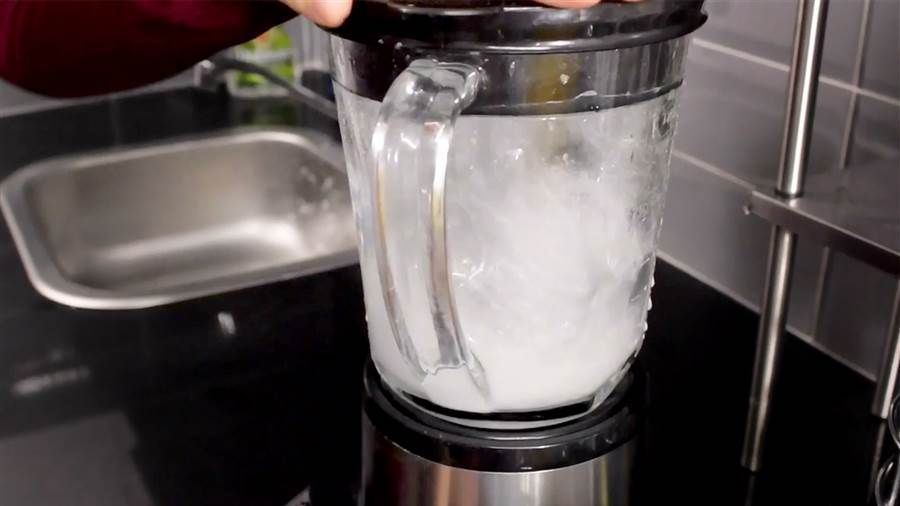
The blade in the blender is very sharp, so you should never put your hands in the pitcher to clean it. Instead, add liquid dishwashing detergent and a few cups of water into the blender and run it for a few seconds before rinsing with water.
15. Peeling potatoes
If you're going to be making mashed potatoes, forget the peeler. Just wash the potato and boil it, then place it in cold water for about five minutes. Twist the skin with your hands and it should come right off!
Do you have tricks that make your kitchen experience easier? Share it in the comments!
